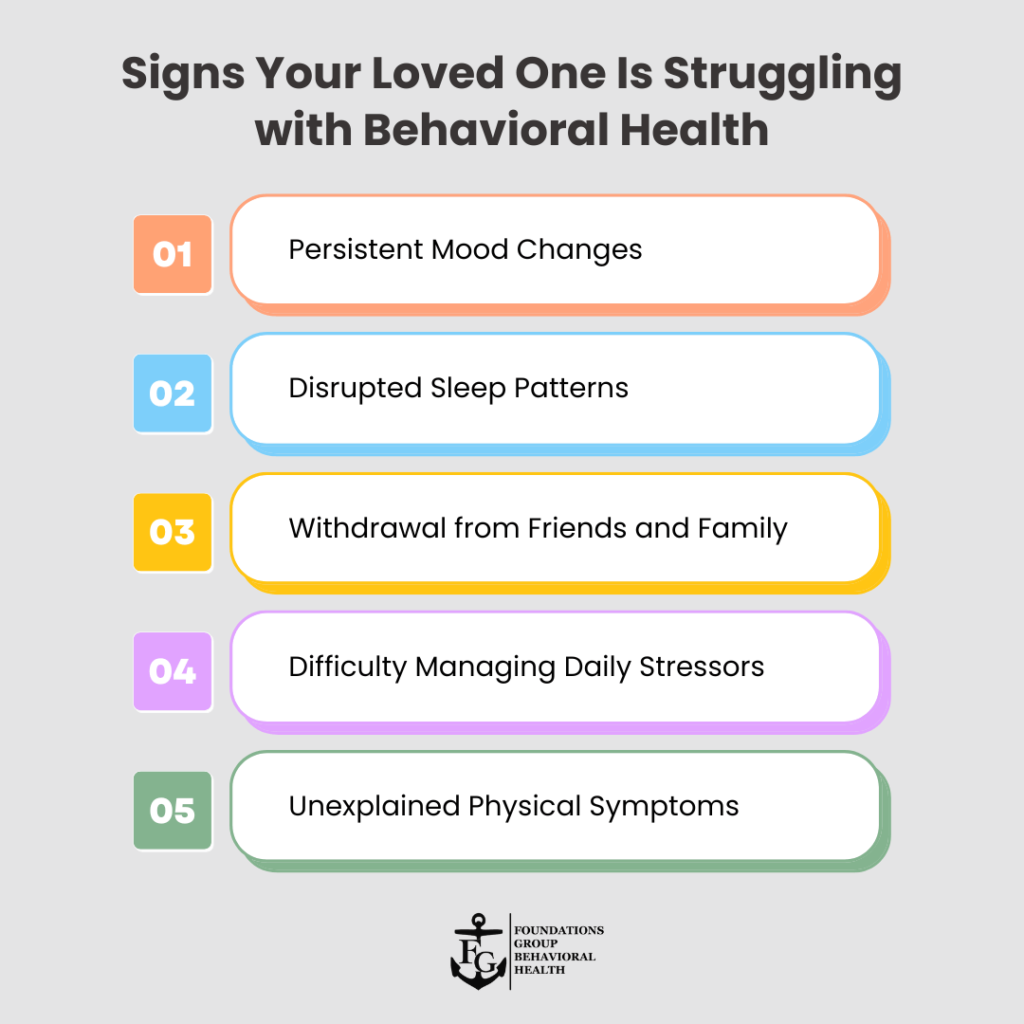Recognizing when someone needs mental health support can be challenging, especially if changes are subtle or gradual. However, understanding the warning signs can empower you to offer help when it’s most needed. Your loved one might benefit significantly from programs like a Psychiatric Day Treatment, Half Day Treatment Program, or Outpatient Mental Health Program, which are designed to provide structured support and guidance for various mental health conditions. Here’s a deeper look at five signs that could indicate your loved one needs behavioral health treatment.
What Is Behavioral Health Treatment?
Behavioral health treatment encompasses a wide range of therapeutic interventions designed to address mental health conditions and improve emotional and psychological well-being. This type of treatment includes structured programs like Psychiatric Day Treatment, Half Day Treatment Programs, and Outpatient Mental Health Programs, which provide individuals with the support, coping skills, and medical care necessary to manage conditions such as anxiety, depression, bipolar disorder, trauma, and sleep disorders. By focusing on both mental and behavioral health, these treatments help individuals build healthier thought patterns, manage symptoms effectively, and improve their overall quality of life.
Recognizing Behavioral Health Symptoms: Key Signs to Watch For
Understanding the warning signs of behavioral health issues can help loved ones identify when professional support might be necessary. Common symptoms may include persistent sadness, social withdrawal, difficulty managing daily stressors, sleep disturbances, and unexplained physical symptoms like chronic pain or fatigue. Recognizing these signs early on can be crucial for encouraging individuals to seek appropriate care, whether through an Anxiety Treatment Program, Depressive Disorder Treatment Program, or other specialized options.
Why Early Recognition of Behavioral Health Symptoms Matters
Recognizing behavioral health symptoms in their early stages is essential for effective treatment and recovery. When behavioral health concerns are left unaddressed, they can worsen over time, affecting a person’s ability to function at work, in relationships, and in daily life. Early intervention through a Mental Health Treatment Center or tailored outpatient programs can help individuals manage symptoms before they escalate. Accessing the right care sooner rather than later increases the chances of recovery, providing individuals with the tools they need to regain control over their lives and foster long-term mental well-being.

5 Signs Your Loved One Is Struggling with Behavioral Health
1. Persistent Mood Changes
Mood fluctuations are normal, but persistent and intense emotions, especially if they don’t seem to improve, can be cause for concern. For example, ongoing sadness, irritability, or feelings of emptiness that last for weeks may indicate conditions such as depression or bipolar disorder.
- Key Signs to Watch For: Your loved one may show signs of a depressive disorder, such as consistent feelings of sadness, hopelessness, or guilt. Alternatively, rapid mood swings from happiness to anger or sadness, which can be characteristic of bipolar disorder, may also signal the need for intervention.
- Treatment Options: Programs like a Depressive Disorder Treatment Program or Bipolar Disorder Treatment Program offer therapeutic approaches that help individuals identify and manage mood changes, providing them with tools to improve emotional regulation, understand underlying triggers, and develop healthier coping strategies.
2. Disrupted Sleep Patterns
Sleep is essential for mental well-being, and disruptions in sleep patterns are often a symptom of mental health conditions. Insomnia, waking up frequently during the night, oversleeping, or feeling constantly fatigued may all point to underlying issues such as anxiety, depression, or trauma.
- Key Signs to Watch For: Notice if your loved one has difficulty falling or staying asleep, experiences frequent nightmares, or sleeps excessively. Chronic fatigue that affects daily functioning is also a red flag.
- Treatment Options: A Sleep Disorder Treatment Program can provide support tailored to those facing insomnia or other sleep disturbances, addressing both the sleep-related symptoms and the mental health conditions that may contribute to them. Techniques like cognitive behavioral therapy for insomnia (CBT-I) and mindfulness can be especially helpful in promoting healthy sleep.
3. Withdrawal from Friends and Family
Social withdrawal is a common sign that someone may be struggling with mental health issues. Individuals may pull back from relationships and activities they once enjoyed, losing interest in social engagements or family gatherings. This isolation is often seen in people dealing with depression, anxiety, or trauma, as social situations may feel overwhelming.
- Key Signs to Watch For: Your loved one may cancel plans frequently, avoid answering phone calls, or stop engaging in hobbies. Even when present, they may seem disconnected, struggling to participate in conversations or find joy in familiar settings.
- Treatment Options: For someone experiencing social withdrawal, an Outpatient Mental Health Program or Psychiatric Day Treatment can be incredibly beneficial. These programs provide structured therapy that helps individuals reconnect with their social circles and regain their confidence. Therapy may include group sessions, where they can learn from others who understand their experiences, helping to reduce feelings of isolation.
4. Difficulty Managing Daily Stressors
When someone finds it challenging to handle daily responsibilities, such as work tasks, household chores, or personal hygiene, it may signal the need for behavioral health treatment. Difficulty coping with routine stressors can be especially prominent in those who are dealing with trauma, co-occurring disorders, or severe anxiety.
- Key Signs to Watch For: Observe if your loved one seems overwhelmed by everyday tasks, experiences frequent bouts of anxiety over minor challenges, or avoids situations due to stress. They may also appear increasingly disorganized or unable to keep up with basic responsibilities.
- Treatment Options: A Trauma Disorder Treatment Program or Co-Occurring Disorder Treatment Program can help individuals address the root causes of their stress and provide tools to manage anxiety, trauma, and other complex emotional responses. Programs like Cognitive Behavioral Therapy (CBT) or Dialectical Behavior Therapy (DBT) are commonly employed to help individuals build resilience and learn healthy coping mechanisms.
5. Unexplained Physical Symptoms
Mental health issues often show up as physical symptoms. Headaches, digestive problems, muscle tension, or chronic pain can sometimes be linked to anxiety, depression, or stress, particularly when there’s no clear medical explanation. Physical symptoms caused by mental health issues are common in those struggling with anxiety and depressive disorders, as the body often reacts to psychological stress in tangible ways.
- Key Signs to Watch For: Your loved one may complain of persistent body aches, stomach pains, or headaches, often without any apparent physical cause. They may visit doctors frequently or try various medications to relieve the discomfort, yet find little to no relief.
- Treatment Options: Anxiety Treatment Programs and Depressive Disorder Treatment Programs can help individuals understand the mind-body connection, working through both the mental and physical symptoms of their conditions. Therapeutic approaches, including somatic therapies and mindfulness-based practices, can provide relief by targeting the psychological sources of physical discomfort.
Taking the Next Step Toward Treatment
If you recognize any of these signs in your loved one, encourage them to consider seeking help. Early intervention through a Mental Health Treatment Center or outpatient program increases the chances of effective management and recovery. Programs like Psychiatric Day Treatment and Half Day Treatment Programs offer structured, evidence-based treatments designed to address a range of mental health conditions and provide the support they need to regain stability and well-being.
At Foundations Group Behavioral Health, we offer a comprehensive array of mental health services, including specialized programs for Anxiety Treatment, Depressive Disorder Treatment, Bipolar Disorder Treatment, Sleep Disorder Treatment, and Trauma Disorder Treatment. Whether it’s a half-day program or a more intensive day treatment, our goal is to provide compassionate, individualized care that supports long-term recovery. Reach out to us at 508.388.5324 to discover more about our behavioral health treatment options in Massachusetts.
FAQs on Recognizing Signs of Behavioral Health Treatment Needs
What are the common signs that indicate someone may need behavioral health treatment?
Common signs include persistent mood changes, social withdrawal, difficulty managing daily responsibilities, disrupted sleep patterns, and unexplained physical symptoms. Recognizing these signs early can help prompt necessary intervention.
How can I approach my loved one about getting help?
Start by expressing your concern in a caring and non-judgmental way. Share specific observations about their behavior and how it affects their daily life. Encourage them to consider professional help and offer to support them through the process.
Why is it important to recognize these signs early?
Early recognition of behavioral health symptoms allows for timely intervention, which can prevent conditions from worsening. Accessing treatment sooner increases the likelihood of effective management and recovery.
What types of treatment options are available for behavioral health issues?
Treatment options vary and may include Psychiatric Day Treatment, Half Day Treatment Programs, Outpatient Mental Health Programs, and specialized programs for conditions like anxiety, depression, and trauma.
How can Foundations Group Behavioral Health assist in these situations?
At Foundations Group, we provide personalized assessments and a variety of treatment options tailored to meet individual needs. Our experienced team is dedicated to helping individuals find the right path to recovery and mental wellness.








